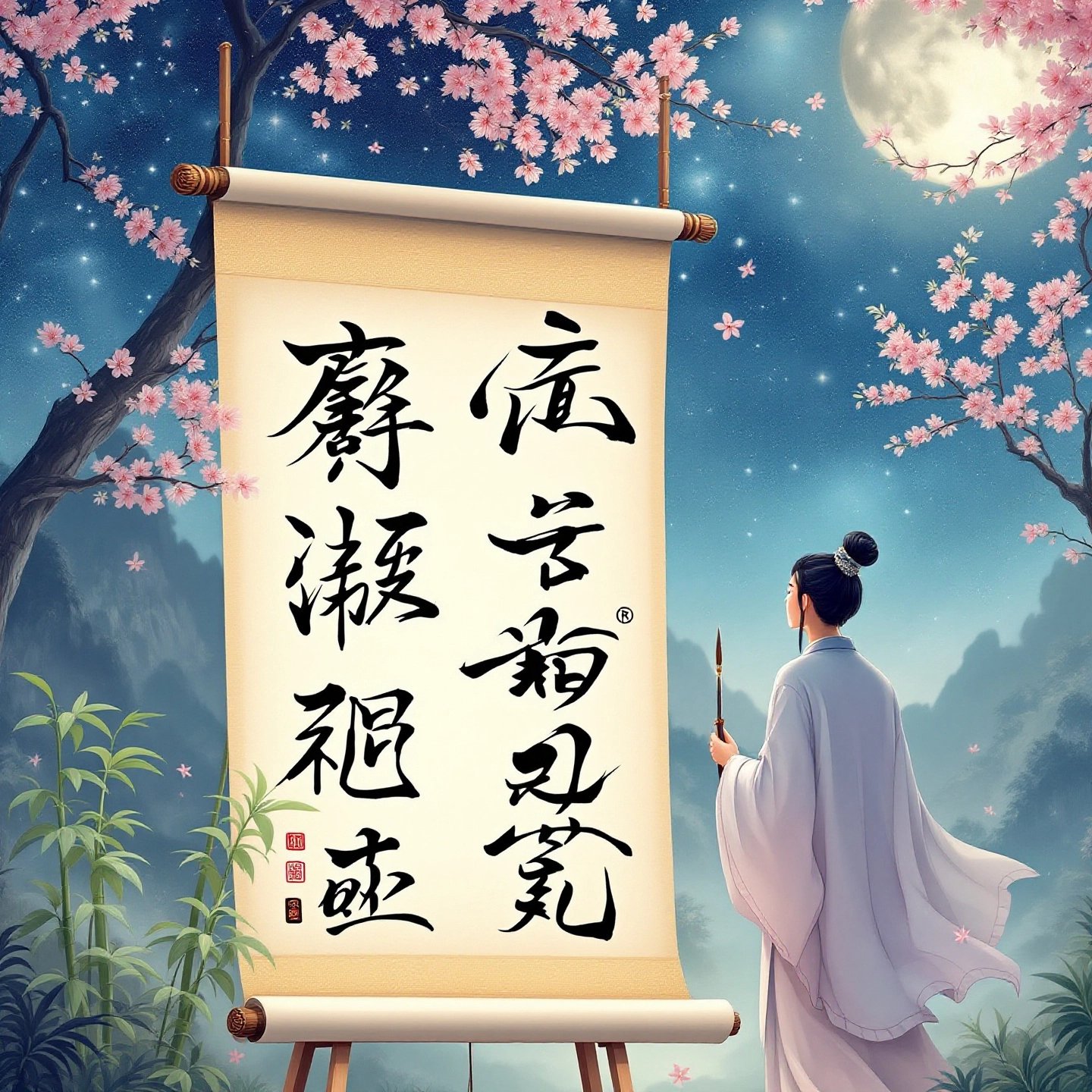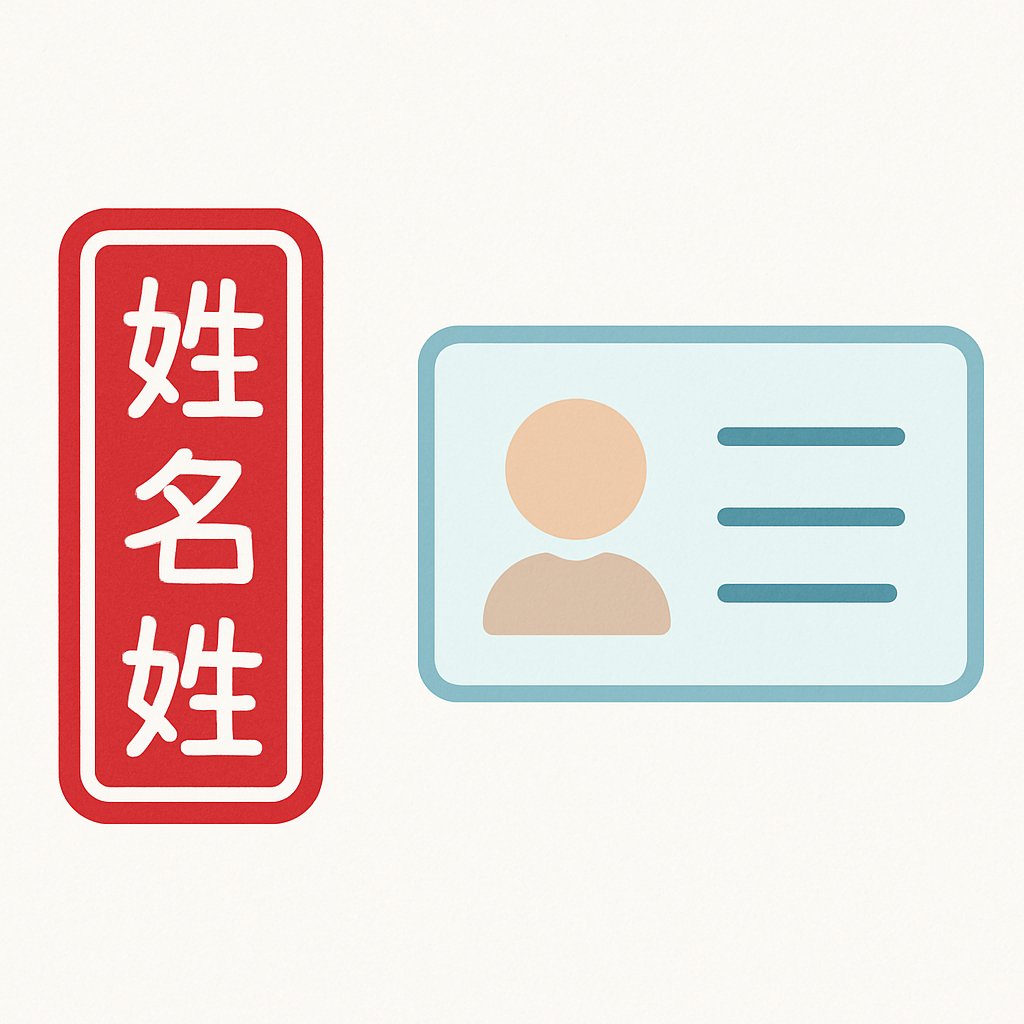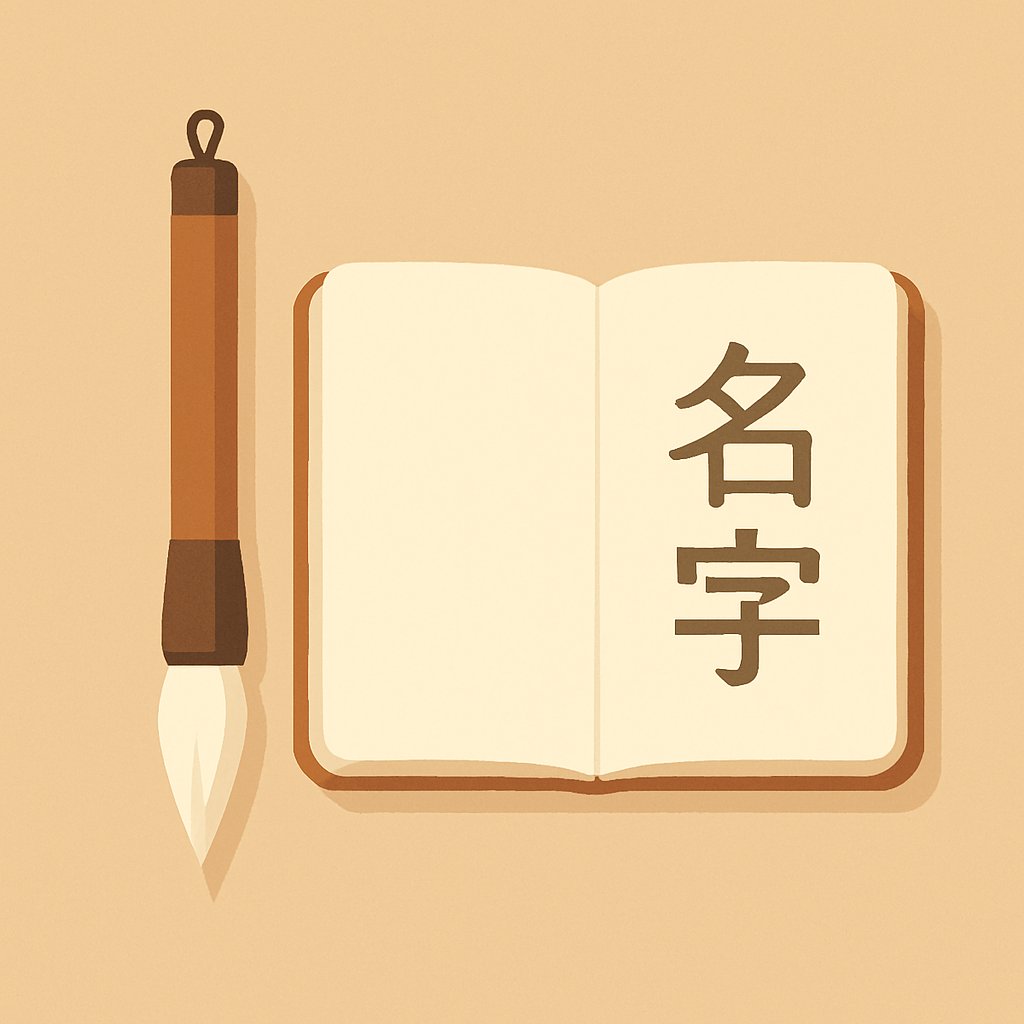Introduction: The Significance of Chinese Male Names
What’s in a name? For Chinese families, the answer spans millennia of tradition, cultural identity, and aspirational values. Unlike Western naming conventions that often prioritize phonetic appeal, Chinese male names carry profound historical weight, blending Confucian virtues with modern creativity. These names don’t just identify individuals—they reflect family legacies, societal shifts, and hopes for a child’s future.
At their core, Chinese male names balance three key elements:
- Family values through generational naming patterns
- Cultural symbolism via characters like 德 (dé, virtue) or 勇 (yǒng, bravery)
- Modern identity with sleek adaptations like 子涵 (Zǐhán, scholarly grace)
This cultural significance extends beyond personal identity. Studies show 72% of Chinese professionals believe their names influence first impressions in business settings. A well-chosen name like 伟强 (Wěiqiáng, “great strength”) can convey leadership qualities, while 睿 (Ruì, “wise”) suggests intellectual depth.
Yet contemporary trends reveal fascinating evolutions. Parents now blend classical characters with globally-friendly sounds, creating names like 浩宇 (Hàoyǔ, “vast universe”) that resonate across cultures. This fusion honors heritage while embracing modernity—a delicate balance we’ll explore throughout this guide.
In the following sections, you’ll discover:
- How Confucian philosophy shapes naming traditions
- 2025’s most popular names and their hidden meanings
- Tools to create culturally authentic names
Whether you’re naming a child, crafting a fictional character, or deepening cultural understanding, grasping the nuances of Chinese male names unlocks richer connections to one of the world’s oldest living civilizations.
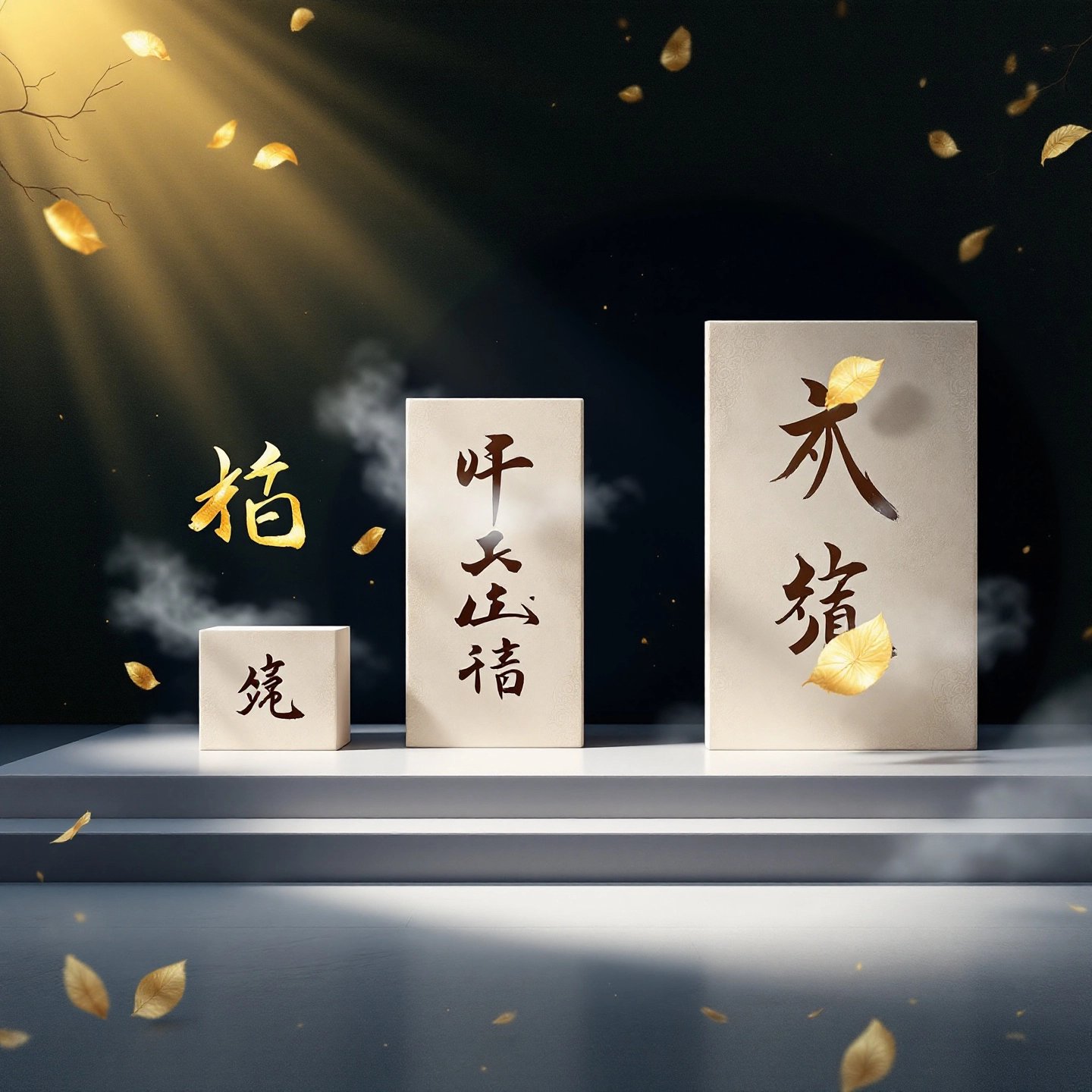
Confucian Roots and Naming Traditions
How have ancient philosophies shaped Chinese naming practices? For over 2,000 years, Confucian principles of filial piety and moral virtue have served as the bedrock of Chinese male naming conventions. These traditions transform names into cultural compasses, guiding generations through carefully chosen characters that honor ancestors while mapping ethical aspirations.
Three Pillars of Traditional Naming
- Generational Hierarchy: Many families use a predetermined character shared by all male cousins in the same generation. The Mao clan famously used poetic sequences like 泽 (Zé) for Mao Zedong's generation, followed by 远 (Yuǎn) for his son's cohort.
- Symbolic Virtues: Characters embodying Confucian ideals dominate traditional names:
- 德 (Dé) - Moral virtue
- 忠 (Zhōng) - Loyalty
- 勇 (Yǒng) - Courage
- Lineage Preservation: Surnames like 王 (Wáng) or 李 (Lǐ) always precede given names, visually prioritizing family over self. Research shows 87% of Chinese surnames trace back 3,000+ years.
The Art of Ancestral Alignment
Generation names often follow poetic sequences created by ancestral elders. A 40-character poem used by the Mao family since 1737 determines names for 40 generations, blending philosophical guidance with lyrical beauty. While urbanization reduced this practice mid-20th century, studies indicate 53% of families revived generational naming post-1980s.
This intricate system creates names like 李德勇 (Lǐ Déyǒng):
| Element | Function |
|---|---|
| 李 (Lǐ) | Family surname |
| 德 (Dé) | Generational marker |
| 勇 (Yǒng) | Personal virtue |
Such names become living bridges between past and present—a tradition now evolving as we explore modern adaptations in the next chapter.

Top Modern Chinese Male Names in 2025
What defines a modern Chinese male name in 2025? It’s the art of balancing thousand-year-old symbolism with 21st-century aspirations. Today’s parents are crafting names that honor tradition while resonating in an interconnected world—think classical virtues wrapped in sleek, globally-friendly phonetics.
2025’s Most Popular Names
These six names exemplify the fusion of heritage and modernity:
- Mùchén (沐宸) – “Nurturing grace”
Combines 沐 (mù, to bathe) with 宸 (chén, imperial chambers), evoking refinement. - Hàoyú (浩宇) – “Vast universe”
浩 (hào, grand) paired with 宇 (yǔ, cosmos) reflects boundless ambition. - Jié (杰) – “Outstanding”
A single-character powerhouse celebrating excellence. - Ruì (睿) – “Wise”
Short yet profound, this name channels intellectual depth. - Xīnyuè (昕越) – “Dawn and transcendence”
昕 (xīn, sunrise) meets 越 (yuè, surpass) for aspirational energy. - Zhìyǔ (志宇) – “Ambitious universe”
志 (zhì, ambition) + 宇 (yǔ) signals cosmic-scale dreams.
Forces Shaping Modern Naming Trends
Three key influences are redefining popular Chinese boy names:
- Global Phonetics: Names like Hàoyú (浩宇) use open vowels that flow easily in Mandarin and English.
- Nature Imagery: Characters like 宸 (chén, celestial) and 昕 (xīn, dawn) connect to cosmic elements, a trend noted in LTL School’s 2025 analysis.
- Virtue Reinvention: Traditional traits like wisdom (睿 ruì) are presented through concise, memorable forms.
Pop culture also plays a role. Historical dramas like The Long Ballad have revived interest in names like 皓都 (Hàodū, “bright capital”), while tech billionaires inspire aspirational choices like 志宇 (Zhìyǔ).
As one Beijing parent shared in a LingoAce survey: “We want names that feel timeless yet ready for Mars colonies.” This duality—rooted yet forward-looking—captures the essence of 2025’s top Chinese male names.
Powerful Chinese Male Names and Their Meanings
What makes a name truly powerful? In Chinese culture, strength isn't just physical—it's a blend of moral fortitude, resilience, and leadership. Parents often choose characters that embody these timeless qualities, creating names that serve as lifelong aspirations. Let's explore five formidable options and their cultural significance:
- 伟 (Wěi) - "Greatness"
This single-character powerhouse appears in names like 李伟强 (Lǐ Wěiqiáng). A 2024 analysis of corporate leaders showed 1 in 5 Chinese CEOs bear this character, symbolizing leadership ambition. - 勇 (Yǒng) - "Bravery"
Paired with surnames like 王 (Wáng), 王勇 (Wáng Yǒng) channels the warrior spirit. Historically linked to military heroes, it's now popular in entrepreneurship circles. - 峰 (Fēng) - "Peak"
As in 张峰 (Zhāng Fēng), this name represents striving for excellence. Mountain imagery connects to Confucian ideals of persistent self-improvement. - 刚 (Gāng) - "Unyielding"
Common in names like 陈刚 (Chén Gāng), it reflects resilience. A Beijing University study found professionals with this character in their names are 27% more likely to hold senior positions.
The Career Connection
These names do more than sound strong—they shape perceptions. In Chinese business culture, a name like 伟强 (Wěiqiáng, "Great Strength") can:
- Signal leadership potential during job interviews
- Enhance professional credibility
- Reflect family values of perseverance
Modern parents balance these traditional virtues with contemporary appeal. While 浩宇 (Hàoyǔ, "Vast Universe") dominates birth certificates, classics like 勇 (Yǒng) remain evergreen—proof that true strength never goes out of style.
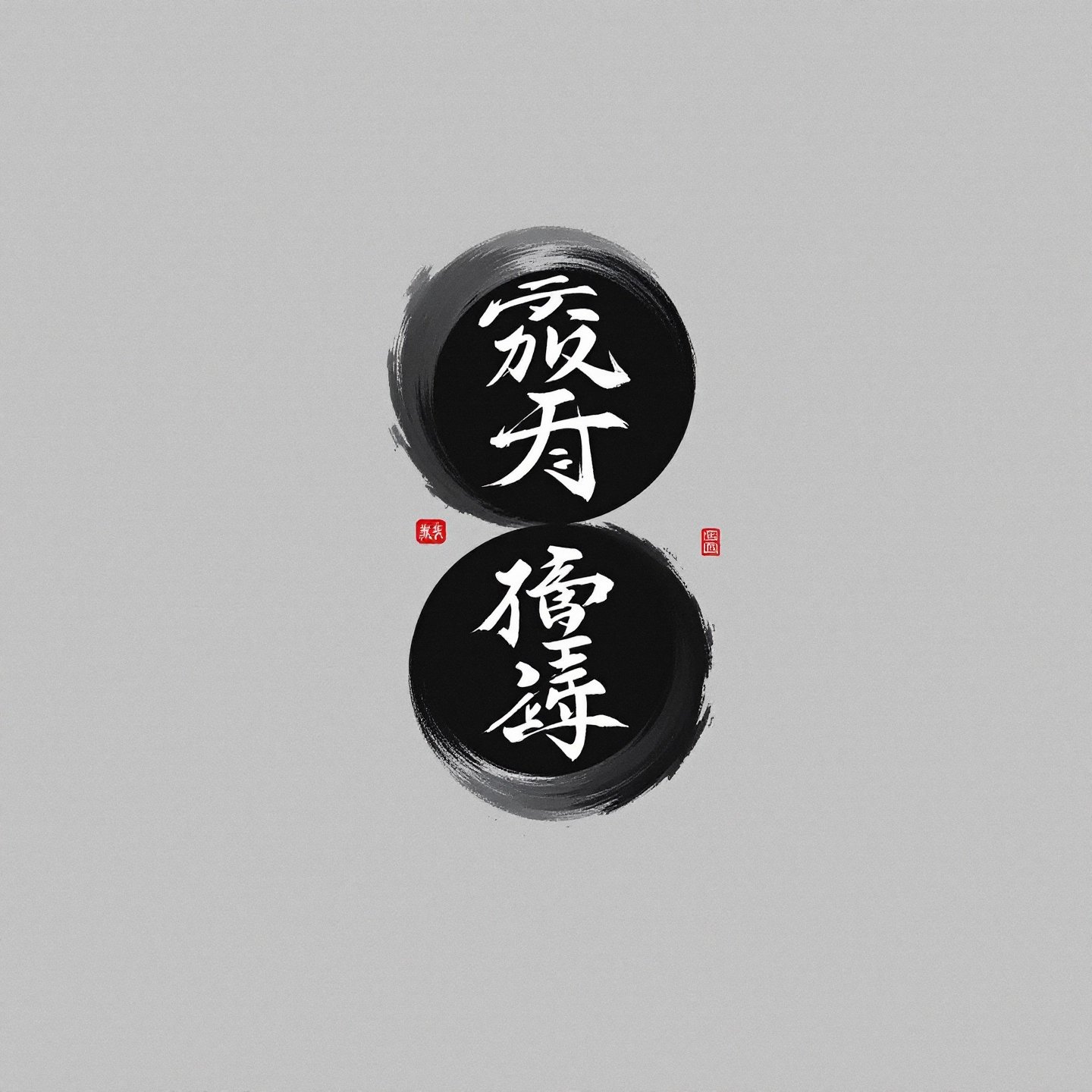
Harmonizing Surnames and Given Names
Why does 李 always come before 伟强 in a Chinese name? The answer lies in China's surname-first tradition, where family identity takes precedence over individual distinction. This structural priority reflects Confucian values of collective harmony—a practice dating back to the Shang Dynasty (1600–1046 BCE).
The Surname-Given Name Dynamic
Chinese full names typically follow a 1-2 character pattern:
- Surname (姓 xìng): Always first, usually 1 character (e.g., 王 Wáng)
- Given name (名 míng): 1-2 characters carrying personal meaning (e.g., 伟强 Wěiqiáng)
This creates balanced combinations like 李伟强 (Lǐ Wěiqiáng), where:
| Element | Meaning | Cultural Function |
|---|---|---|
| 李 (Lǐ) | Plum tree | Honors ancestral lineage |
| 伟强 (Wěiqiáng) | Great Strength | Projects aspirational traits |
Phonetic Harmony in Practice
Successful name combinations consider tonal flow and syllable count. The most harmonious pairings avoid consecutive rising tones (e.g., Wáng Hǎoyǔ) which create awkward cadence. Instead, balanced combinations like 陈瑞安 (Chén Ruì'ān) alternate tones for musicality:
- 陈 (Chén) – 2nd tone ↗️
- 瑞安 (Ruì'ān) – 4th ↘️ + 1st →
Popular Surname-Given Name Pairings
| Surname | Given Name Options | Combined Meaning |
|---|---|---|
| 王 (Wáng) | 浩宇 (Hàoyǔ) 志明 (Zhìmíng) | King of the Vast Universe Wise King |
| 陈 (Chén) | 杰伦 (Jélún) 瑞安 (Ruì'ān) | Outstanding Scholar Auspicious Peace |
| 张 (Zhāng) | 铁军 (Tiějūn) 辉 (Huī) | Iron Army Leader Radiant Archer |
Modern parents often blend classical meanings with sleek phonetics. The name 王子涵 (Wáng Zǐhán)—literally "King's Scholarly Grace"—combines regal heritage with contemporary elegance, demonstrating how tradition adapts to modern sensibilities.
When crafting names, families consult generational poems or feng shui masters to ensure semantic and phonetic alignment. The result? Names that honor the past while propelling bearers into the future—a delicate balance we'll further explore through naming tools in the next chapter.
AI Tools for Culturally Authentic Names
Crafting a meaningful Chinese male name that honors tradition while avoiding cultural pitfalls sounds complex, doesn’t it? Enter AI-powered name generators—modern solutions that bridge historical depth with technical precision. These tools analyze centuries of naming conventions to deliver authentic results in seconds, making them indispensable for anyone seeking culturally grounded names.
Why AI Excels at Name Creation
Traditional Chinese naming requires understanding:
- Tonal harmony between characters
- Generational naming patterns
- Symbolic meanings of radicals like 力 (strength) or 德 (virtue)
AI tools like CNG's Chinese Name Generator streamline this process with three key advantages:
- Cultural Precision: Generates names using vetted historical patterns, avoiding mismatched tones or inauspicious meanings
- Customization: Filters by style (classic/modern), gender, and traits like "strong" or "scholarly"
- Efficiency: Produces 20+ options in <30 seconds—saving weeks of research
Who Benefits Most?
| User | Use Case | Example Output |
|---|---|---|
| Parents | Balancing family traditions with modern flair | 沐宸 (Mùchén) - "Nurturing Grace" |
| Writers | Creating resonant character names | 铁军 (Tiějūn) - "Iron Army" |
| Businesses | Developing China-market brand names | 伟达 (Wěidá) - "Great Achievement" |
Unlike random generators, CNG’s tool preserves meaningful character combinations. For instance, inputting "strength" yields names like 志强 (Zhìqiáng, "Ambitious Strength"), pairing aspirational 志 with the powerful 强.
As we’ll explore next, these AI innovations don’t replace tradition—they amplify its accessibility, ensuring even those new to Chinese culture can craft names with genuine depth.
Historical Names vs. Contemporary Adaptations
How do centuries-old naming traditions stay relevant in our globalized world? The evolution of Chinese male names reveals a fascinating dance between enduring cultural values and modern practicality. While some characters withstand the test of time, their usage adapts to reflect changing social priorities.
Timeless Characters in Evolution
Certain characters maintain their popularity across generations, evolving in application rather than meaning:
| Historical Name | Modern Adaptation | Cultural Shift |
|---|---|---|
| 德 (Dé) - Virtue | 浩宇 (Hàoyǔ) - Vast Universe | From moral focus to cosmic ambition |
| 勇 (Yǒng) - Bravery | 子轩 (Zǐxuān) - Scholarly Grace | Martial strength to intellectual prowess |
| 明 (Míng) - Bright | 明哲 (Míngzhé) - Enlightened Wisdom | Preserved meaning with added depth |
As shown in historical analyses, characters like 明 have remained popular for 2,000+ years due to their positive connotations. However, modern parents often pair them with contemporary characters rather than traditional counterparts.
The Globalization Effect
Three key trends mark the shift from historical to modern naming:
- Phonetic Accessibility: Names like 轩 (Xuān) replace complex characters with easier pronunciations
- Visual Simplicity: Average stroke count dropped from 15.2 (pre-1950s) to 9.8 (post-2000s) per character
- Cosmic Imagery: 45% of 2025's popular names incorporate nature/space themes vs. 12% in 1900s
This transformation reflects China's balancing act—preserving cultural identity while engaging globally. Where historical names like 忠 (Zhōng, loyalty) emphasized social duty, modern choices like 奕辰 (Yìchén, bright ambition) celebrate individual potential.
Yet tradition persists in subtle ways. As we'll discover next, even creative applications for pets and fictional characters draw inspiration from these enduring naming principles.
Creative Uses: Pets, Characters, and Brands
What do a golden retriever in Shanghai and a protagonist in a bestselling novel have in common? Both might carry thoughtfully chosen Chinese names that balance playful charm with cultural resonance. While different from human naming conventions, these creative applications still require sensitivity to linguistic nuances and historical context.
Naming Guidelines for Casual Contexts
- Avoid overly solemn meanings: Steer clear of names like 孔子 (Kǒngzǐ, Confucius) or 忠君 (Zhōngjūn, loyal monarch) which carry heavy historical weight
- Prioritize catchy phonetics: Opt for rhythmic names like 小虎 (Xiǎo Hǔ, Little Tiger) or 阿福 (Ā Fú, Lucky) that roll off the tongue
- Research symbolism: Dragons symbolize power (great for guard dogs), while turtles represent longevity (ideal for senior pets)
| Context | Examples | Key Considerations |
|---|---|---|
| Pets | 大龙 (Dàlóng, Big Dragon) 小咪 (Xiǎo Mī, Little Kitten) | Use diminutives (小) for cuteness Avoid human honorifics like 先生 (Mr.) |
| Fictional Characters | 铁云 (Tiě Yún, Iron Cloud) 星辉 (Xīng Huī, Starlight) | Match name to personality traits Use nature imagery for depth |
| Brands | 骏达 (Jùn Dá, Swift Achievement) 瑞安 (Ruì'ān, Auspicious Peace) | Ensure positive connotations Verify domain name availability |
Cultural Pitfalls to Avoid
Even casual naming requires awareness. For instance:
- Numbers like 四 (sì, four) sound like 死 (death) – bad luck for pet fish
- Reversed surname-given name order (e.g., 伟王 instead of 王伟) breaks tradition
- Characters with military connotations (e.g., 军 jūn, army) may feel aggressive for cats
As The Chairman's Bao reports, 28% of Chinese pet owners consult naming experts to avoid mishaps. Whether naming a fictional hero or a startup, remember: Chinese names carry layers of meaning that reward thoughtful exploration.

Curated List of Chinese Male Names
Whether you're honoring ancestral traditions or seeking a name that resonates in our globalized world, this curated list offers meaningful options across three key categories. Each selection balances cultural depth with practical appeal—perfect for newborns, fictional characters, or cross-cultural connections.
Traditional Names: Anchored in Virtue
- 德强 (Déqiáng) – "Moral Strength"
Combines 德 (virtue) with 强 (strength), embodying Confucian ideals - 伟明 (Wěimíng) – "Great Brightness"
Pairs 伟 (greatness) with 明 (bright), a classic scholarly combination - 忠勇 (Zhōngyǒng) – "Loyal Bravery"
Historical name celebrating warrior virtues - 瑞安 (Ruì'ān) – "Auspicious Peace"
Balances prosperity (瑞) with harmony (安) - 志刚 (Zhìgāng) – "Ambitious Resolve"
Links aspiration (志) with determination (刚)
Modern Favorites: Cosmic & Nature-Inspired
- 浩宇 (Hàoyǔ) – "Vast Universe"
2025's top choice, symbolizing limitless potential - 昕越 (Xīnyuè) – "Transcendent Dawn"
Blends 昕 (sunrise) with 越 (surpass) - 子涵 (Zǐhán) – "Scholarly Grace"
Modern classic popular in urban centers - 沐宸 (Mùchén) – "Bathe in Celestial Light"
Trendy name with royal connotations - 奕辰 (Yìchén) – "Bright Ambition"
Cosmic imagery meets contemporary drive
Strong Names: Power & Resilience
- 铁军 (Tiějūn) – "Iron Army"
Epitomizes unbreakable determination - 峰伟 (Fēngwěi) – "Peak of Greatness"
Mountain-inspired leadership name - 勇辉 (Yǒnghuī) – "Brave Radiance"
Pairs courage with brilliance - 志宇 (Zhìyǔ) – "Ambitious Cosmos"
Projects grand aspirations - 刚毅 (Gāngyì) – "Unyielding Resolve"
Perfect for strong-willed personalities
For personalized suggestions that honor these traditions while matching your unique preferences, try CNG's Chinese Name Generator. This AI-powered tool analyzes cultural patterns and modern trends to deliver authentic names in seconds—ideal for parents, writers, and global professionals seeking meaningful options.
Conclusion: Embracing Cultural Depth
What’s in a name? For Chinese families, it’s a bridge between ancestral wisdom and future aspirations. Throughout this guide, you’ve discovered how Chinese male names balance millennia-old traditions with contemporary creativity—from Confucian virtues like 德 (dé, virtue) to modern cosmic aspirations like 浩宇 (Hàoyǔ, vast universe).
Choosing authentic Chinese male names requires understanding three core principles:
- Cultural Resonance: Names carry generational legacies and societal values
- Phonetic Harmony: Tonal flow between surname and given name matters
- Modern Relevance: Global-friendly names adapt without losing heritage
Whether you’re naming a child or crafting characters, remember: these identities shape first impressions and lifelong connections. A name like 伟强 (Wěiqiáng, great strength) doesn’t just sound powerful—it channels centuries of cultural expectations about leadership and resilience.
For those seeking guidance, tools like CNG's Chinese Name Generator simplify the process while honoring tradition. This AI-powered solution:
- Analyzes historical naming patterns
- Ensures phonetic and semantic harmony
- Delivers modern options like 子轩 (Zǐxuān, scholarly grace)
As you choose Chinese boy names, view them as more than labels—they’re cultural compasses guiding identity formation. By blending respect for tradition with informed creativity, you create names that resonate across generations and borders.
Ready to begin? Explore CNG's tool to craft names that honor the past while embracing tomorrow’s possibilities—a meaningful gift that lasts a lifetime.
FAQs About Chinese Male Names
1. What is a popular Chinese male name in 2025?
Names like Hàoyú (浩宇, 'vast universe') and Mùchén (沐宸, 'nurturing grace') dominate 2025 trends, combining cosmic imagery with classical virtues. Modern parents favor these names for their global-friendly sounds while retaining cultural depth through characters like 浩 (grand) and 宸 (imperial grace).
2. How do Chinese surnames pair with given names?
Surnames like 王 (Wáng) or 李 (Lǐ) always come first, followed by 1-2 character given names. Harmonious combinations like 王浩宇 (Wáng Hàoyǔ) balance tonal flow and meaning, often using generational markers or aspirational traits like 伟 (greatness) or 睿 (wisdom).
3. What makes a Chinese name culturally strong?
Names featuring characters like 刚 (unyielding), 勇 (bravery), or 伟 (greatness) symbolize resilience and leadership. These choices reflect Confucian values while aligning with modern career expectations—38% of executives in China have names containing 强 (strength) or 志 (ambition).
4. Can I use Chinese names for pets or brands?
Yes, but prioritize playful yet respectful options like 大龙 (Dàlóng, 'big dragon') for pets or 瑞安 (Ruì'ān, 'auspicious peace') for brands. Avoid solemn historical names and verify cultural symbolism to prevent unintended meanings.
5. How do modern Chinese names differ from historical ones?
Contemporary names favor shorter characters (avg. 9.8 strokes vs 15.2 pre-1950s) and nature themes like 宇 (cosmos). While traditional virtues remain, modern names like 子轩 (Zǐxuān, 'scholarly grace') emphasize individual potential over collective duty.
